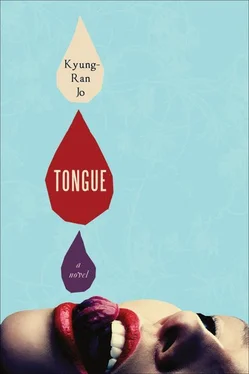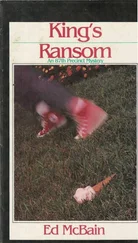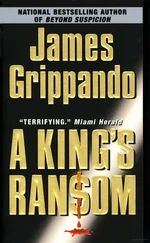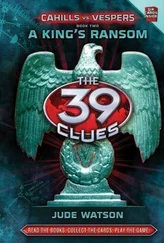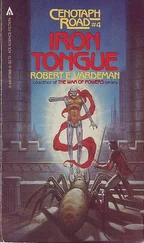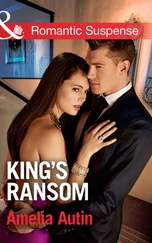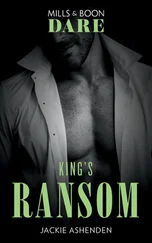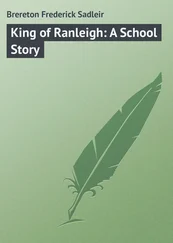“If you keep doing this, I’m leaving.”
“I’m making dinner right now. Just wait. It’s almost done. If you just leave now I might keep calling and bothering you, and not leave and stay here. That’s not what you want, is it?”
He’s silent.
“So just be quiet and stay.”
“What’s the main course today?”
“Of course it’s meat, it’s what you like. But today I cut it a little thinner.”
“…Why?”
“Do you know why people started cooking sliced meat?”
He’s quiet.
“Because it became uncivilized to put an entire animal on the table. You want to eat meat but you feel uneasy. So they started to slice it smaller. And you can keep distance from the animal being eaten. But isn’t it kind of funny? It’s not like it changes the nature of it.”
“I’m hungry. Is it ready yet?”
“You just want to leave here as soon as possible.”
“No, it’s just because I want to eat. Something smells so great.”
“I think it was when you were recovering from the accident. We were taking a walk and you said, I’m the happiest right in this moment. You stroked Paulie with one hand and grabbed my hand with the other. I was so happy that tears sprang to my eyes. I was so happy that you had come to and that you were happy. Unbelievably happy. And I smelled bursting thyme. I felt that delicate herb exploding and spreading like popcorn.”
“Did you ask me to come for this?”
“No, no. It’s almost ready. I’ll give you soup first.”
He sits down again, resigned. I place a tart green summer apple that I’d frozen after scooping out the inside, frosty, on the table. Inside is a cold soup made with apple, butter, sugar, broth. It would go down his throat sweetly and softly. I chose this soup because I thought it would go best with the strong, tough tongue. He takes a spoonful to his mouth and his face blooms. “It’s cold and sweet and silky. I bet the world’s first apple tasted like this.”
“Adam and Eve made love after eating an apple.”
“What?”
The apple that was placed in her armpit . For people with a sensitive sense of taste and a certain sensuality, the most amazing scent is that of their lover’s sweat. He laps up every last drop of the soup, scraping the bottom of the apple with his spoon. Her smell will keep him relaxed . At least until this meal is finished.
“Now it’s time for salad.” I serve a salad of arugula and grapefruit. Then it will be time for the main course. I have to gradually awaken his senses. The sweet-and-sour grapefruit and bitter arugula would gently waft past the bumpy taste buds like a spring breeze.
“Simple, and you can taste nature.”
“Good. I’ll get you a different wine. It’s time for the main course.”
I bring out two tall Riedel wineglasses, shaped like tulips about to bloom. The wine I got for tonight’s meal is Barolo Zonchera. It goes especially well with flavorful meat dishes. The wine he ordered on his first visit to Nove, when I leaned on the pass to steal glances at him, while he was immersed in eating my steak.
I pour a glass of the Barolo for myself. I place the tongue in the middle of a large white plate and top it with three slivers of truffle, and next to it I place fresh oven-roasted asparagus in a V shape. The deep brown tongue, intense gray truffle, and mellow green asparagus clustered on the white plate impart trust before they’re tasted. The reason chimpanzees eat each other’s brains is that their souls are in them. Our souls live here. In this tongue. Now it’s your turn to tell me what it tastes like .
I dim the kitchen lights.
I take a white cloth trimmed with lace from a cabinet.
I pick up the plate carefully with both hands and place it on the table.
“Your favorite poet, Baudelaire, said, Be always drunk on wine, or poetry, or virtue.”
His face splits into a smile upon seeing the plate. “So you’re saying, get drunk on virtue!”
“Right. Try it.” I slip the white cloth over his head. This is what they did when eating ortolan. When they chewed on the bird’s rib cage and wings, bones and innards, in the dark with a cloth over their heads, they were able to relive the bird’s entire life. They really understood taste, didn’t they?
He takes up the fork and knife obediently. Slices of tongue fan out in perfect symmetry on the sauce of garlic, peppercorn, truffle oil, lemon, and watercress. He pierces the middle piece, the biggest, the one with the clearest shape. Immobile, I watch him put it into his mouth and close his lips and move his chin slowly, chewing. A smile spreads across his face.
“How is it?”
“There’s something really tough about it, but it has a really good texture. It even feels crisp under my teeth, like very hard vegetables. Is this really beef?”
“Of course, of course,” I nod vigorously.
He puts another bite in his mouth and chews. “How can it taste like this? It’s so good.”
“There’s something special in my recipe, you know.”
“I feel a power in my mouth like two strongmen are competing against each other. Not just a fight that splatters blood but something that creates harmony, like a fight of taste.”
“Really?”
“Yeah. The taste is so alive—it’s leaping around on my tongue.”
You can’t fool taste. His pupils are starting to dilate. He chews carefully and swallows, one morsel after another. As if he’s enveloped in a holy light, his face becomes flushed and sweat dots his forehead. He’s sinking into my new dish. I hear from far away the patter of cats walking across the yard and raindrops falling into the drain. The feast has to be the last thing of the day. In quiet and intimacy like this. Like travelers who want to get to the same destination together. I feel the ground swaying peacefully. I’m standing on water. Dizziness sweeps across me. I pause from stirring the watermelon sherbet that’s for dessert and whisper in his ear, “Should we kiss just one time? Just once?” This is the end.
His eyes betray wariness. I grab his right wrist, the one holding the fork.
“Okay, because you’re truly a great cook. But this really is it.”
We approach each other slowly and our lips touch, fluttering, a resting of my face on a frost-covered winter window. Not too hot or close or passionate. Like a shy first kiss, tentative and soft.
I open my eyes and look into his. One man and one woman. Like every love story, there are happy times if you look back. And the first moment of seduction that drew us in. But now it’s time to go back to our places. To feel more and to remember more. We have returned to our first shared moment. But maybe we are now different trees. Trees that can only drink in different musical notes. Everything starts to die as soon as it’s born. Some things thrive and others decline while some are reborn and others float away. The thing that lives, gradually changes. It’s not important to go somewhere but it’s crucial that we’re moving. In the dark I quickly wipe away a tear with the back of my hand and with his fork I spear a piece of tongue and gently push it between his red lips.
Kyung Ran Jo was born in Seoul, South Korea, in 1969. She earned a degree in creative writing from Seoul Institute of the Arts and has participated in the University of Iowa’s renowned International Writing Program. Since her fiction debut at age twenty-eight, she has earned numerous literary awards including the Today’s Young Artist Prize from the South Korean Ministry of Culture and Tourism and the Dong-in Literary Award for her newest short-story collection, I Bought Balloons. Tongue , an immediate bestseller in South Korea, is her first novel to be translated into English.
Читать дальше
